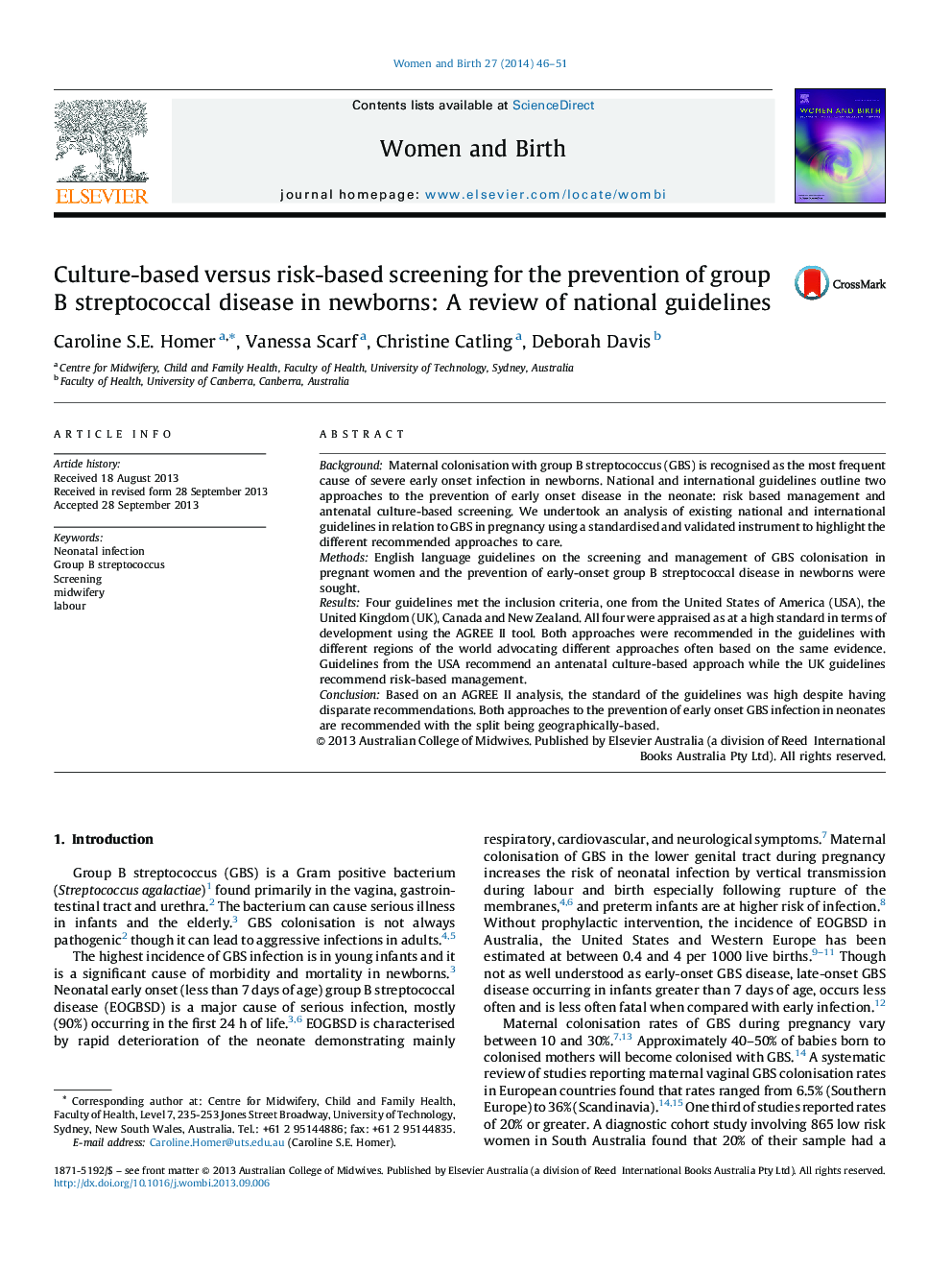| Article ID | Journal | Published Year | Pages | File Type |
|---|---|---|---|---|
| 2636059 | Women and Birth | 2014 | 6 Pages |
BackgroundMaternal colonisation with group B streptococcus (GBS) is recognised as the most frequent cause of severe early onset infection in newborns. National and international guidelines outline two approaches to the prevention of early onset disease in the neonate: risk based management and antenatal culture-based screening. We undertook an analysis of existing national and international guidelines in relation to GBS in pregnancy using a standardised and validated instrument to highlight the different recommended approaches to care.MethodsEnglish language guidelines on the screening and management of GBS colonisation in pregnant women and the prevention of early-onset group B streptococcal disease in newborns were sought.ResultsFour guidelines met the inclusion criteria, one from the United States of America (USA), the United Kingdom (UK), Canada and New Zealand. All four were appraised as at a high standard in terms of development using the AGREE II tool. Both approaches were recommended in the guidelines with different regions of the world advocating different approaches often based on the same evidence. Guidelines from the USA recommend an antenatal culture-based approach while the UK guidelines recommend risk-based management.ConclusionBased on an AGREE II analysis, the standard of the guidelines was high despite having disparate recommendations. Both approaches to the prevention of early onset GBS infection in neonates are recommended with the split being geographically-based.
